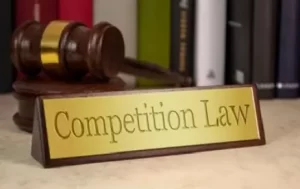The intellectual property (IP) licensing has gone a long way with the pace of technology…
The Indian Perspective On Intellectual Property Rights And Competition Legislation
Changing Relation of IPR Law and Competition Law
The laws governing intellectual property (“IPR Law”) and competition are frequently perceived as being in opposition to one another. While the goal of IPR law is to preserve inventors’ rights over their creations, the goal of competition law is to maintain effective market competition by prohibiting anti-competitive acts and the misuse of dominant positions. The competition law offers better market access to society, which goes against the exclusivity granted to inventors by the IPR law, while the IPR legislation attempts to protect and compensate the innovator.[1]
The IPR law and the competition law are now being reconciled with one another through legislation and judicial rulings, despite the fact that this contradiction is predatory in nature. IPR law’s goal has been changed from defending individual inventors to promoting new ideas.[2] As a result, the IPR legislation is now considered a supporting element of competition law policy.[3]
The Competition Act, 2002 in the context of Indian law also allows for a comprehensible connection between IPR law and competition law. While Section 3 of the Competition Act,[4] 2002 provides that no enterprise or association has the right to enter into any anti-competitive agreements, under Section 3(5) of the Competition Act, 2002, an IPR holder is protected even if he may enter into an anti-competitive agreement provided that he acts within the boundaries of his IPR rights.[5] In order to foster innovation in the nation, this broad protection for IPRs is supported by their legal entitlement to privacy and seclusion.
[Image Sources : Shutterstock]

The Competition (Amendment) Bill, 2020
According to the Report of the Competition Law Review Committee’s recommendations, which was submitted in July 2019,[8] the Draft Competition (Amendment) Bill, 2020[9] proposed numerous notable amendments to the Competition Act, 2002, two of which are particularly noteworthy in relation to the present article: the expansion of Section 3(4)’s application and the extension of the IPR Safe Harbour to cases involving dominant positions.
The Competition Commission of India or the Courts may apply the provision addressing anti-competitive practise under a variety of circumstances, as set forth in Section 3(4) of the Competition Act, 2002. In order to broaden the application of anti-competitive agreements that do not fit into any of the other categories stated in Section 3(4) of the Competition Act, 2002, the Competition (Amendment) Bill, 2020 wants to incorporate the term “any other agreement.”
As mentioned above, the IPR Safe Harbour is currently solely used in India for situations involving anti-competitive activities. In order to expand the IPR Safe Harbour to IPR holders in respect to the competition law even in situations of dominant position, the Bill seeks to add Section 4A to the Competition Act, 2002. By shielding them from legal problems while they exercise their lawful intellectual property rights holders in a good faith and just manner, this new provision is thought to strengthen the protection of the rights of the IPR holders.
Competition (Amendment) Bill, Section 4A, 2020: Good or Bad?
Although its application was only limited to anticompetitive trade agreements, Section 3(5) of the Competition Act, 2005 does not grant the IPR Safe Harbour to IPR holders in circumstances of dominant power. According to the Committee, IPR owners should also receive protection in situations involving misuse of a dominant position, subject to acceptable limits and restrictions. It was thought that even if IPR holders were protected against anti-competitive acts, there was no justification for not also offering the IPR Safe Harbour in situations involving the misuse of dominant position.
In place of the Committee’s recommendations, Section 4A of the Competition (Amendment) Bill, 2020 mandates that IPR holders also be covered by the IPR Safe Harbour in situations of abuse of dominant position.
However, since the government had released the draft Bill, a number of industrialists have voiced their opposition to the aforementioned section on the grounds that it would grant IPR holders unrestricted rights to use their dominant positions and would negatively affect the efficient operation of the markets.
Because Indian competition law is still in its infancy, it is important to consult international legal norms regarding dominant positions and intellectual property (IPR) before drawing any conclusions about the potential effects of Section 4A of the Competition (Amendment) Bill, 2020. The European Court of Justice stated in the case of Parke, Davis & Co. v. Probel that while the granting of a patent to an inventor is not an unfair business activity, the improper use of patent rights can result in the exploitation of the efficient operation of the markets as a whole.[10] In fact, the Court continued by noting that intellectual property rights are a legitimate factor to take into account in situations involving dominant position. Additionally, the court noted in one of the most significant cases, Radio Telefis Eireann and Independent Television Publications Ltd. v. Commission of the European Communities, that in some exceptional situations, the holders of intellectual property rights may use their rights in a way that results in an abuse of dominant position.[11] A U.S. court rejected a business claim of abuse of dominance in the case of Data General Corporation v. Grumman Systems Support Corporation[12] on the grounds that the defendant had a valid copyright on the subject matter, and as a result, the court granted an IPR holder the IPR Safe Harbour in connection with a case involving dominance of position.
As a result, in such circumstances, it can be inferred from the case laws discussed above that the courts have occasionally given an IPR holder a pass on accusations of dominant position because of their IPRs, but occasionally they have not taken into account the fact that the IPR law supersedes the competition law. Thus, in the midst of such conflicting opinions, the Ministry appears to have made the right choice to add Section 4A to the Competition Act, 2002 in order to provide businesses with clarity regarding the right of an IPR holder to defend his intellectual property in situations involving abuse of a dominant position.
At this point, it’s crucial to remember that intellectual property rights are statutory and not unassailable rights. When implementing the IPR Safe Harbour in cases involving abuse of dominant position, the Commission and other judicial bodies must keep this well-established legal principle in mind. In fact, the Competition Law Review Committee itself stated in its report that the Judiciary and the Commission must apply a narrow interpretation to the application of the aforementioned IPR Safe Harbour in cases involving dominant position in order to ensure a proper balance between the goals of the IPR law and the goals of the Competition law.
Using the notion of extraordinary circumstances as applied in the renowned Magill case is one of the most effective approaches to correctly implement Section 4A of the Competition (Amendment) Bill, 2020 and to guarantee an equilibrium between the IPR law and competition law.[13] According to the concept established in the Magill case, the holder of an intellectual property right shall be considered to have abused his dominant position if any one of the following four circumstances exists:
- the absence of a suitable replacement item,
- The creation of new products was hampered by the refusal to provide information.,
- a rejection without a valid justification and/or
- avoiding competition in a different market and taking advantage of a secondary market like this.
Additionally, it was determined in Microsoft Corp. v. Commission that additional criteria may also be pertinent for the application of the extraordinary circumstances doctrine and that the list of reasons presented in the Magill case is not exhaustive.[14]
The scope of the doctrine of exceptional circumstances has thus been broadened by the Microsoft case ruling and may now be applied by the courts depending on the specific facts and circumstances of each case. In fact, the Committee had proposed to employ the rule of reason, that is, base the decision on appraisal of the evidence of each case, in recognition of the fact that cases relating to the intersection of IPR and competition law may highly be based on the circumstances of the situation. Therefore, Section 19(4)(m) of the Competition Act, 2002, which grants the Commission the authority to consider any pertinent factors for the purpose of determining the abuse of dominant position, may be referred to and relied upon if this doctrine is applied by the Commission or the Courts in India when dealing with cases related to Section 4A of the Competition (Amendment) Bill, 2020.[15]
Conclusion
The Ministry has successfully resolved the quandary that the IPR rights are a relevant consideration at the time of making decisions in connection to misuse of dominant power with the introduction of Section 4A in the Competition (Amendment) Bill, 2020. But, allowing the IPR holders to exploit this ostensibly all-encompassing provision without restriction would undermine the goals of the competition law. The rule of reason, the concept of exceptional circumstances, and Section 4A of the Competition (Amendment) Bill must all be applied holistically and harmoniously in order to ensure that the goals of IPR law and competition law are correctly aligned under Indian law.
In this regard, it is also significant to know that after the comments were invited by the authorities on the Draft Competition (Amendment) Bill, 2020, there has been no significant progress made in terms of amending Section 4 of the Competition Act, 2002. The recent Competition (Amendment) Bill, 2022 does not have any reference to introduce and extend the IPR safe harbour to the ‘dominant position’ condition which showcases the fact that the idea of this extension of IPR safe harbour and to reconcile the IPR law and competition law further has been stalled after the comments had been invited to the Draft Competition (Amendment) Bill, 2020 which needs to be reconsidered by the Parliament.
Author : Dwija Vasavada, A Student at Gujarat National Law University. in case of any queries please contact/write back to us via email to chhavi@khuranaandkhurana.com or at IIPRD.
[1] SCM Corp. v. Xerox Corp., 645 F.2d 1195 (2d Cir. 1981).
[2]Intergovernmental Group of Experts on Competition Law and Policy, fifteenth session, UNCTAD <https://unctad.org/meeting/intergovernmental-group-experts-competition-law-and-policy-fifteenth-session>
[3] Gitanjali Shankar & Nitika Gupta, ‘Intellectual Property and Competition Law: Divergence, Convergence and Independence’, (2011) 4 NUJS L. Rev. 113.
[4] Competition Act, 2002, § 3, No. 12, Acts of Parliament, 2003 (India).
[5] Competition Act, 2002, § 3(5), No. 12, Acts of Parliament, 2003 (India).
[6] Entertainment Network (India) Limited v. Super Cassette Industries Ltd., (2008) 13 SCC 30.
[7] Aamir Khan Productions Pvt. Ltd. v. Union of India, (2010) 6 AIR Bom R 80.
[8] Report of the Competition Law Review Committee, Ministry of Corporate Affairs, Government of India (July 2019).
[9] Draft Competition (Amendment) Bill, 2020.
[10] Parke, Davis & Co. v. Probel, 29 February 1968.
[11] Radio Telefis Eireann and Independent Television Publications Ltd. v. Commission of the European Communities, ECLI:EU:C:1995:98.
[12] Data General Corp. v. Grumman Systems Support Corp., 761 F. Supp. 185 (D. Mass. 1991).
[13] European Court Reports 1995 I-00743
[14] Microsoft Corp. v Commission of the European Communities. ECLI:EU:T:2007:289.
[15] Competition Act, 2002, § 3(5), No. 12, Acts of Parliament, 2003 (India).



